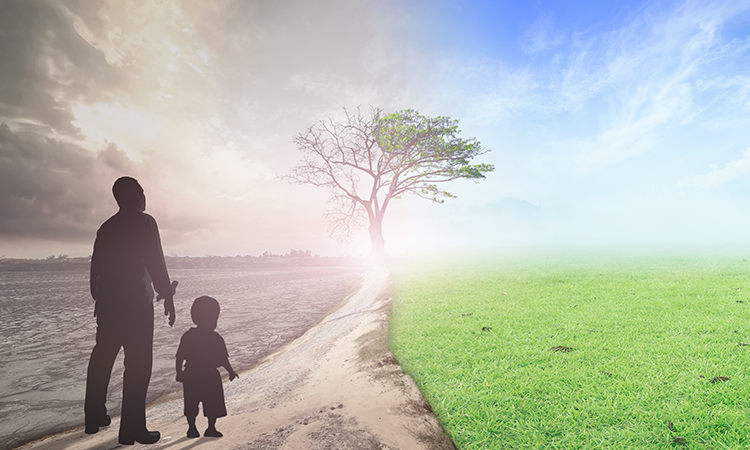Does our body change with the weather?

An elderly couple look at the sea under the sun while protecting themselves from the heat but also from the risk of a second wave of Covid-19, in Nice, in August 2020.
Shorter nights, a less active lifestyle, increased susceptibility to certain illnesses, and, for women, lifelong hormonal disruptions. These are some of the changes that await the inhabitants of planet Earth in the future, in connection with the evolution of the climate. Beyond the immediate effects of heat waves and other extreme weather events on health, which are increasingly well studied, scientists are now looking into the longer-term consequences of global warming on the human body, its morphology, its functioning, and behaviors that determine health such as sleep, physical activity, etc.
Data is still scarce. “So far, studies have been conducted in the short term, for example by observing physiological changes over the course of a summer, there is still little work on behavioral adaptations in the medium and long term”underlines Guillaume Chevance, researcher at the Barcelona Institute of Global Health (ISGlobal), who is interested in the links between climate change and health behaviors.
The subject promises to be all the more complex to explore as it is necessary to take into account the direct effects of the rise in temperatures, but also the indirect consequences, on access to food, pollution, etc.
On a physical level, humans should not change their appearance radically, at least in the next few decades, says doctor and anthropologist Alain Froment, author of Anatomy sassy, the human body and evolution (Odile Jacob, 2013). Admittedly, tall and thin populations (like the Nilotic peoples in Africa) are best adapted to a hot climate – because a large surface area facilitates sweating, and a modest weight limits the production of heat –, explains Alain Froment. “But these biological evolutions take thousands of years. They are much slower than cultural or technological evolutions., he notes. Similarly, contrary to popular belief, increased temperatures and heat waves will not lead to pigmentary changes. “Our skin has no reason to darken, because solar radiation will not change”insists the doctor and anthropologist.
shortened sleep
Other behavioral and physiological changes are looming. While the average sleep time has already tended to erode in recent decades around the world, the price of changing lifestyles, rising temperatures could accentuate the trend. This is the conclusion of a vast study carried out by a Danish team led by Kelton Minor, published in May in the journal One Earth. The researchers had access to a huge sleep database – more than 7 million nighttime recordings made in nearly 48,000 people via connected bracelets, in 68 countries, which they correlated with local weather data.
When temperatures remain high at night, individuals fall asleep later, wake up earlier and therefore sleep less. Above 25°C, the probability of sleeping less than 7 hours increases by 3.5%, compared to a night when the thermometer is around 5°C to 10°C. “Older people, women, and people living in low-income countries are most affected”write the Danish scientists.












